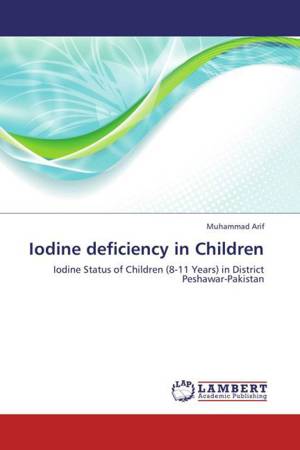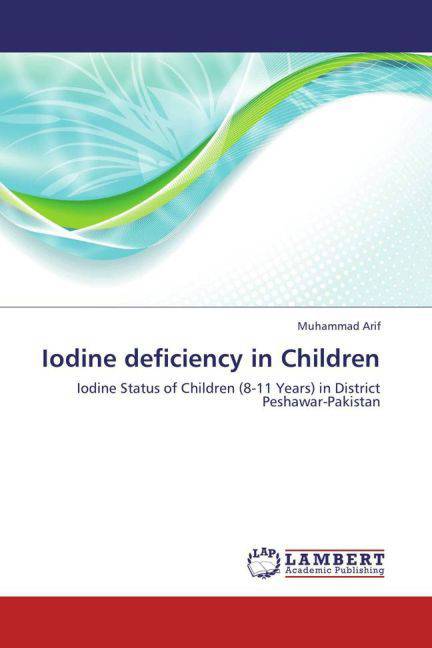
- Afhalen na 1 uur in een winkel met voorraad
- Gratis thuislevering in België vanaf € 30
- Ruim aanbod met 7 miljoen producten
- Afhalen na 1 uur in een winkel met voorraad
- Gratis thuislevering in België vanaf € 30
- Ruim aanbod met 7 miljoen producten
Zoeken
Iodine deficiency in Children
Iodine Status of Children (8-11 Years) in District Peshawar-Pakistan
Muhammad Arif
Paperback | Engels
€ 64,45
+ 128 punten
Omschrijving
The intensity of nutritional deficiencies in developing countries is increasing day by day. There is a dire need to address these problems practically. Iodine deficiency is amongst one of these problems. To know the exact magnitude of the problem is essential for effective strategy. A cross-sectional study was conducted in urban and rural communities of District Peshawar to estimate the consumption of iodized salt at households level and to assess the prevalence of IDD by clinical and biochemical measurements. Weight, height and mid arm circumference measurements were also taken to know about the nutritional status of the children. It is hoped that the present work might be helpful for Government and national and international agencies to devise strategies to eradicate the evil menace of iodine deficiency.
Specificaties
Betrokkenen
- Auteur(s):
- Uitgeverij:
Inhoud
- Aantal bladzijden:
- 64
- Taal:
- Engels
Eigenschappen
- Productcode (EAN):
- 9783838312385
- Verschijningsdatum:
- 24/01/2013
- Uitvoering:
- Paperback
- Afmetingen:
- 150 mm x 220 mm
- Gewicht:
- 114 g

Alleen bij Standaard Boekhandel
+ 128 punten op je klantenkaart van Standaard Boekhandel
Beoordelingen
We publiceren alleen reviews die voldoen aan de voorwaarden voor reviews. Bekijk onze voorwaarden voor reviews.








